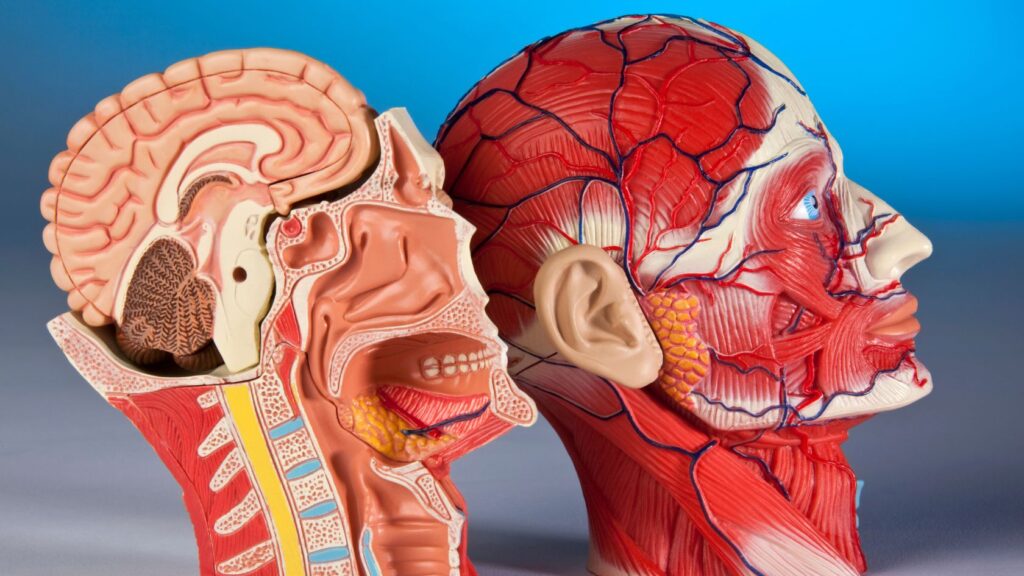In today’s rapidly evolving healthcare landscape, data-driven decisions are transforming the way we understand and address health. Traditional medical tests are designed to diagnose established diseases, but what happens when an imbalance exists before a disease fully develops?
Functional lab tests step in to fill this gap by providing insights into the body’s preclinical state—revealing where and how function has been lost before symptoms become clear. This article delves into the power of functional lab tests, contrasting them with conventional diagnostics, and explains how they can help practitioners identify hidden healing opportunities to optimize overall health.

Understanding Functional Lab Tests
Functional lab tests are unique in that they go beyond diagnosing disease. Instead, they measure the loss of function across various body systems and provide a comprehensive snapshot of an individual’s health. Key characteristics include:
Preclinical Detection
- Unlike traditional tests that confirm the presence of disease, functional lab tests detect imbalances before a full-blown condition develops.
- They help practitioners identify early disruptions in systems such as hormones, immunity, digestion, detoxification, energy production, and the nervous system.
Data-Driven Insights
- By quantifying the degree of functional loss, these tests enable clinicians to design personalized protocols that address root causes rather than just alleviating symptoms.
- They serve as a basis for making informed decisions and optimizing treatment plans.
Holistic Evaluation
- Functional lab tests take into account the complex interplay between various bodily systems, ensuring that no potential healing opportunity is overlooked.

Traditional Diagnostic Tests vs. Functional Lab Tests
The Medical Approach
Disease Diagnosis
- Conventional lab tests are used primarily to confirm a diagnosis. For example, a doctor may order a thyroid blood test if symptoms like weight gain, fatigue, and hair loss are present.
- The focus is on matching symptoms to a specific disease profile, which then guides the treatment plan—often through prescription medications.
Limitations
- Diagnostic tests are snapshots that capture a moment in time and may be influenced by acute factors such as stress or nervousness.
- They rely heavily on symptom clusters, which can be vague and sometimes misleading, potentially leaving multiple healing opportunities unaddressed.
The Functional Approach
Beyond Symptoms
- Functional lab tests aim to understand what has been lost in terms of bodily function rather than just labeling a disease.
- By assessing the degree of functional loss, practitioners can uncover hidden imbalances and target interventions more precisely.
Comprehensive Analysis
- This approach allows for the identification of multiple imbalances simultaneously. For example, a thyroid dysfunction might be just one aspect of a broader spectrum of issues that also affect digestion, detoxification, and energy production.
- Functional lab tests provide a framework to correlate clinical data with a patient’s lifestyle, allowing for more personalized and effective treatment strategies.
Dynamic Monitoring
- Recognizing that the body’s response is highly dynamic, functional lab tests are best interpreted in the context of multiple measurements. This multi-lab approach helps distinguish between acute responses (e.g., due to stress or recent physical activity) and underlying chronic imbalances.

The Role of Data-Driven Decisions in Functional Health
Data is at the heart of modern functional health. By using functional lab tests, practitioners can:
Identify Hidden Imbalances:
- Detect preclinical changes that might not yet manifest as overt symptoms.
- Provide a clearer picture of where the body’s function is diminishing.
Personalize Treatment Plans:
- Develop tailored protocols based on the specific functional deficits identified.
- Avoid the pitfalls of a one-size-fits-all approach by considering individual variability.
Monitor Progress and Adjust Interventions:
- Use follow-up tests to evaluate the effectiveness of interventions.
- Make informed adjustments to treatment plans based on real-time data.
Prevent Disease Development:
- Address potential health issues early on, reducing the risk of progressing to full-blown disease.
- Empower patients with actionable insights that support long-term wellness.

Interpreting Functional Lab Test Results
Interpreting the results of functional lab tests requires a nuanced understanding of both the data and the patient’s clinical context. Here are some key considerations:
Acute vs. Chronic Responses
- Functional lab tests provide a snapshot in time. Factors such as stress, recent exercise, or even the anxiety of a needle can alter the results.
- It is crucial to correlate lab markers with the patient’s reported symptoms, lifestyle, and other clinical findings to determine if an abnormal result is an outlier or part of a chronic pattern.
The Value of Multiple Data Points
- Relying on a single lab test can be misleading. Instead, combining data from multiple tests helps create a comprehensive view of the patient’s health.
- Look for patterns across different markers to build a robust hypothesis about the underlying imbalances.
Clinical Correlation
- Effective clinical correlation ensures that no potential healing opportunity is overlooked.
- Always contextualize lab results within the broader picture of the patient’s health. What might appear as a significant imbalance in isolation could be less concerning when seen alongside other data points.

Selecting Reputable Functional Labs
With a proliferation of labs on the market—many offering shiny, high-tech tests—it’s critical to choose ones that provide reliable and clinically relevant data. Consider the following criteria:
Quality and Accuracy
- Ensure that the lab uses validated methods to measure biomarkers.
- Look for labs with a track record of consistent, reproducible results.
Clinical Insight
- The best labs offer more than just numbers; they provide context and actionable insights that can be integrated into treatment protocols.
- Seek labs that have been vetted and endorsed by experienced functional health practitioners.
Relevance to Functional Health
- Verify that the lab’s offerings align with your practice’s philosophy and treatment approach.
- Not all lab tests are created equal. Choose tests specifically designed to assess the functional integrity of body systems rather than those geared solely toward diagnosing disease.

Actionable Steps for Practitioners
For health practitioners looking to integrate functional lab tests into their practice, here are some actionable steps:
Evaluate Your Current Testing Protocols:
- Compare traditional diagnostic tests with functional lab tests to identify gaps in your current approach.
Invest in Quality Labs:
- Partner with reputable labs that have been thoroughly vetted for quality and accuracy.
Integrate Multi-Lab Strategies:
- Use a combination of tests to get a comprehensive understanding of your patient’s health.
- Develop protocols for regular follow-ups to monitor progress and adjust treatments accordingly.
Educate Your Patients:
- Explain the benefits of functional lab tests to your patients, emphasizing the proactive approach to health.
- Encourage them to see testing as a part of a broader, preventive strategy rather than a reaction to symptoms.
Stay Informed:
- Keep abreast of the latest developments in functional lab testing to continuously refine your approach.
- Join professional networks or continuing education courses focused on functional medicine and data-driven health strategies.

Conclusion
Functional lab tests represent a paradigm shift in healthcare—moving away from a reactive, symptom-based model toward a proactive, data-driven approach. By identifying where and how function is lost in the body, practitioners can address imbalances early, tailor treatments to individual needs, and ultimately unlock multiple healing opportunities that traditional diagnostics may overlook. Whether you are a practitioner looking to refine your clinical protocols or a patient seeking a deeper understanding of your health, embracing functional lab tests can lead to more informed decisions and better outcomes.
By integrating functional lab tests into your practice, you not only enhance diagnostic precision but also empower yourself and your patients with the tools needed for proactive health management.
Take the first step towards a more informed and holistic approach to health today & enroll in our Functional Lab Workshop.
Enroll in our Introduction to Functional Labs Program
Ready to take your practice to the next level? Enroll in our Functional Labs 5 Day Workshop Series and gain access to the cutting-edge insights and tools you need to identify preclinical imbalances and optimize your patient outcomes. Visit 5 Labs in 5 Days now and use coupon code power9 at checkout to save over 90%. Don’t miss this opportunity to transform your practice with a data-driven, functional approach to health.







